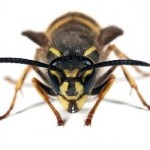In America Wasp Species Are More Abundant And Diverse Than Many People Realize
Wasps may be the most abundant insect species on the planet. Researchers are currently considering having beetles replaced with wasps as the most species-rich type of insect in existence. Wasps belong to the hymenopteran family, which also includes other social insects, such as bees and ants. At the moment, researchers have managed to document more than one hundred and fifty thousand hymenoptera species in the world. Although wasps belong to the hymenoptera genus, it is not always clear which insects are truly wasps and which are not. This confusion is due to the tremendous degree of diversity among wasp species. For example, researchers are discovering more species of parasitoid wasps in the wild. Parasitoid wasps alone are considered to be the most diverse group of insects by many entomologists. New parasitoid wasp species are discovered frequently. Not long ago, two hundred new parasitic wasp species were discovered in Costa Rica during one single expedition.
In the United States, wasp species are not as well represented as they are in many other countries, especially Asian countries. However, there exists three hundred wasp species just within the relatively small state of New Jersey. Most of these wasps are solitary and not social. Solitary wasps dig burrows into the ground for shelter, and they capture and paralyze insects and spiders before planting their eggs on top or inside of their bodies. Solitary wasps plant their eggs within other arthropod’s bodies in order to provide their offspring with shelter during development and food for when they hatch. Solitary wasps almost never disturb humans.
Most people have become acquainted with social wasps, as these are the wasps that sting people and are known for being aggressive and territorial. Social wasps live within colonies that are dominated by a queen who is also the mother of every wasp in the colony. Unlike solitary wasps, social wasps feed primarily on plant matter, such as pollen and nectar. Not surprisingly, many of these wasps are important pollinators.
Did you know that solitary wasps even existed? Were you aware of the fact that some wasps are not social insects that live within colonies?
Tags: In America Wasp Species Are More Abundant And Diverse Than Many People Realize



